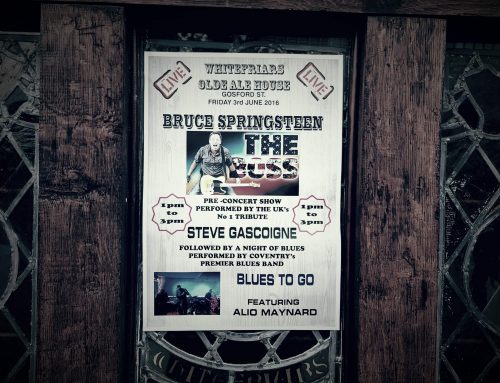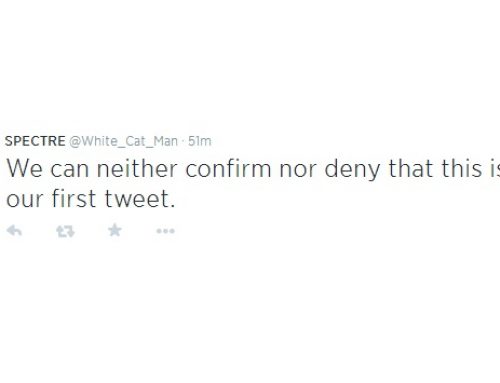One of my favourite Christmas presents this year was the Season 7 DVD box set of the classic 90s American comedy series Seinfeld. I say “Christmas present”, but I actually bought it for myself. ‘Twas the weekend before Christmas and – after spending a day spending my money on family and friends – I felt like indulging myself. I didn’t wrap it up or anything. I’m not that sad.
I’ve been a fan of Seinfeld ever since BBC2 started showing it as a double-bill with the equally brilliant The Larry Sanders Show 12 or-so years ago. I used to set the VCR to tape the shows then watch them after work the next day. I found it very therapeutic. Due to this scheduling quirk, even now – years later – I still think of the Seinfeld and The Larry Sanders Show as a pair of classic comedy co-joined twins. Maybe I always will.
Unlike other American comedy imports like Friends, Seinfeld never really caught on in this country. Maybe it was because, unlike Friends, it’s central characters weren’t funny, good-natured, likable people. They were funny, self-centred, thoroughly unlikeable people. I never much cared for Friends. The TV show, that is. In all other respects I very much care for friends.
Or perhaps its lack of popularity in Blighty was due to something else. Maybe it was because the clever-clever wordplay and shouty-shouty schadenfreude of New York Jewish comedy left many BritCit citizens cold – unless, like me, they raised themrselves on The Marx Brothers, Phil Silvers and Woody Allen and were one of the few Gentiles in the audience at Jackie Mason stand-up gig.
Or maybe it was a lot simpler than that. Maybe it was because Auntie Beeb – in her infinite wisdom – used to put it on ridiculously late at night. Like many American imports in those pre-digital days, Seinfeld (and, of course, The Larry Sanders Show) seemed to be shuffled around the schedules like an unwanted dog. You were never quite sure when it would be on, but you could just about safely narrow it down to somewhere between Newsnight and Breakfast News.
(If Heroes came out back then, I imagine the Beeb would have put it on at half-past Stupid-O-Clock on a Tuesday morning. They’d have probably cancelled random episodes at short notice in order to show live coverage of the Crown Green Bowling Semi-Finals at Roehampton. And, seeing how it’s such a continuity-heavy show, they’d have gone to the trouble to broadcast the episodes out of sequence. Like they did with The X-Files. Bastards. But I digress…)
Anyway, back to Seinfeld. For the uninitiated, here’s a description of the show I shamelessly nicked from Wikipedia:
Seinfeld violated several conventions of mainstream television. The show, which (correctly or not) is often described as “about nothing”, became the first television series since Monty Python’s Flying Circus to be widely described as postmodern. Several elements of Seinfeld fit in with a postmodern interpretation. The show typically is driven by humor dispersed with superficial conflict and characters with strange dispositions.
The characters were “thirty-something singles … with no roots, vague identities, and conscious indifference to morals.”
[Hurd R. Wesley – Postmodernism: A New Model of Reality]. Usual conventions, such as isolating the characters from the actors playing them and separating the characters’ world from that of the actors and audience, were broken. One such example is the story arc in which the characters promote a television sitcom series named Jerry. The show within the show, titled Jerry was much like Seinfeld, in which Seinfeld played himself, and that the show was “about nothing.” Jerry was launched in the Season 4 finale, but unlike Seinfeld, it was not picked up into a series.Many episodes revolved around the characters becoming involved in the lives of others to typically disastrous results. However, regardless of the damage they caused, they never gained anything from the experience and continued to be selfish, egocentric people. On the set, the notion that the characters should not develop or improve throughout the series was expressed as the “no hugging, no learning” rule. This quote is almost referenced in an episode (“The Secret Code“) where Kramer says to Jerry, “Well the important thing is, you learned something,” to which Jerry replies, “No I didn’t.” Unlike most sitcoms, there are no moments of pathos; the audience is never made to feel sorry for any of the characters. Even [George Costanza’s fiance] Susan’s death in the series elicits no genuine emotions from anyone in the show.
You can see why I’m such a fan.
But back to the Seinfeld Season 7 box set. This was show co-creator Larry (Curb Your Enthusiasm) David’s last series, and – in the humble opinion of this Roman Catholic Irish raconteur dilettante eejit – was it’s finest. It featured classic episodes like “The Maestro”, “The Hot Tub” and “The Rye”.
And it also featured “The Soup Nazi“.
In “The Soup Nazi” episode, Jerry tells his deeply dishonest, atavistically insecure and cosmically misanthropic friend George Constanza about a great New York soup kitchen that makes soup so good it’ll make your legs buckle. The proprietor – however – is somewhat eccentric. He insists on a certain fascistic code of conduct amongst his customers and will tolerate no deviance, however slight. As you enter the store you step to the right, step forward, place your order, step to the left and pay. You do not engage in small talk. You do not question his judgement. You do not complain.
Needless to say, George Costanza inadvertently fails to comply and piss-your-pants funny comedy ensues. If you want to know more either watch the episode or go here. I’d prefer it if you watched the episode. Classic comedy is like good food: the menu is not the meal.
The Soup Nazi character was based on a real guy, Al Yeganeh, who ran the Soup Kitchen International in Midtown Manhattan (as I recall, it was just around the corner from the Letterman studios). When I visited New York a few years’ ago I made a personal pilgrimage to the Soup Kitchen International. Sadly, it was closed.
To paraphrase the Soup Nazi, there was “No soup for me.”











Leave A Comment